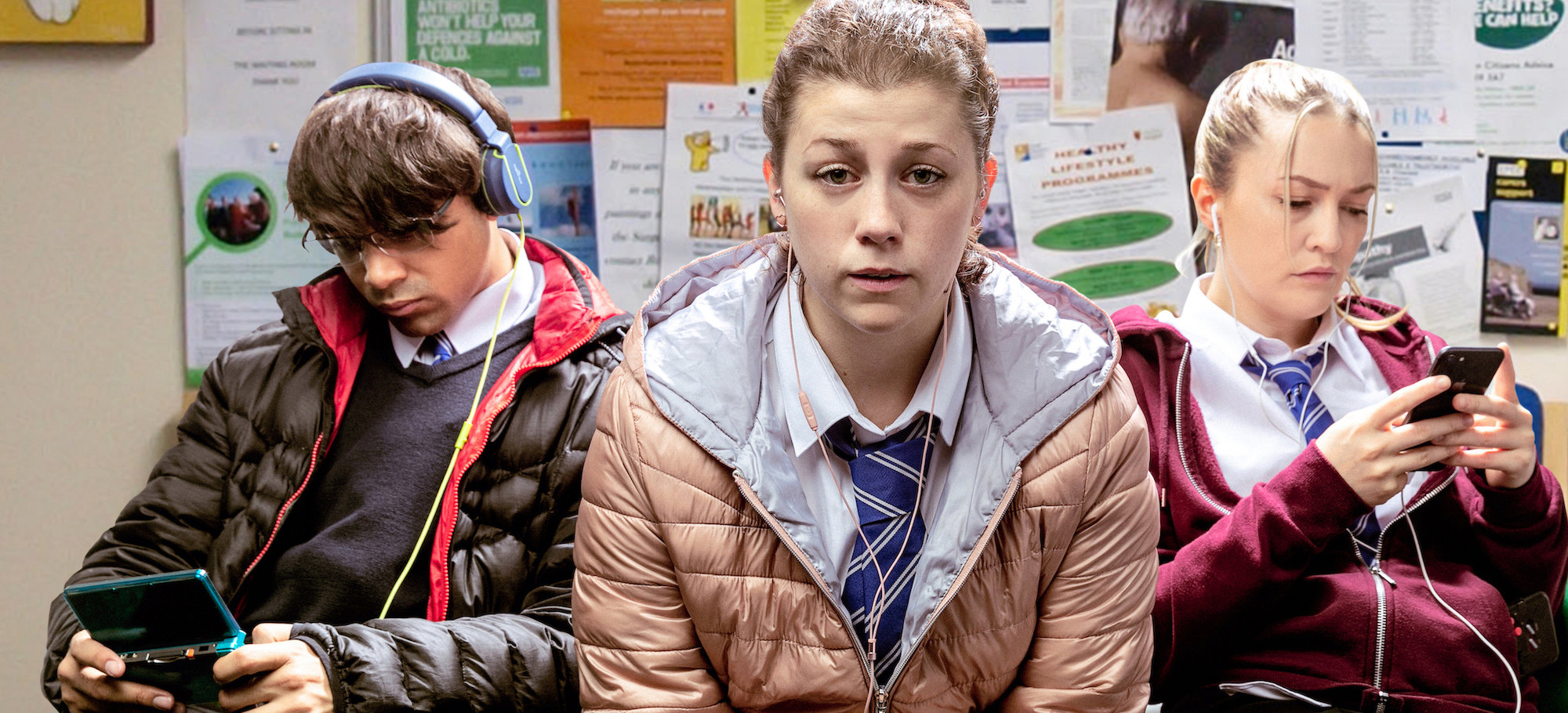
Culture Writers Emma Walker and Sarina Shah review Who Cares? and find themselves moved by the dialogue taken verbatim from interviews with young carers
Having read a brief introduction to Who Cares?, a play examining the UK’s failing social care system and young carers, I knew my Monday night was not going to be filled with escapism. However, I also did not expect to leave the MAC with so much food for thought on a topic I had previously known very little about.
The fact that the play’s dialogue is taken verbatim from interviews with young carers is thought-provoking and heart-breaking in equal measure
Lung Theatre’s Who Cares? is based on the stories of Nicole, Jade and Connor, three young carers in different year groups at the same high school. In case anyone is unaware, as I was, young carers are defined as children ‘age 17 and under who provide unpaid care to a family member because of a disability, illness, mental health condition or [an] addiction.’ According to a 2013 BBC report, approximately 1 in 12 children in the UK are young carers. Who Cares? explores the circumstances of these young people, and the issues that arise from them not being identified as carers by local authorities. The fact that the play’s dialogue is taken verbatim from interviews with young carers is thought-provoking and heart-breaking in equal measure. It skilfully blends familiar parts of school life with personal events that are both unimaginable and tragic. The show’s three actors superbly and sympathetically take on all of the play’s roles, putting forward the perspectives of young people, parents, councillors, and social workers. Whilst the play is based in Salford, I sadly believe it could be a fair reflection of just about any city across the UK.
However, as much as the play itself impacted me, I was even more taken by Lung Theatre’s work off-stage. During the post-show Q&A, I found out that Who Cares? was originally written as an identifying tool toured around schools, for young carers who may see elements of themselves in the characters. The theatre’s engagement work now includes CPD training for social workers and teachers, as well as the proposal of several policies to enhance the lives of young carers. Simply put, the play and its surrounding campaign should be on the radar of anyone working with children.
Although Who Cares? run-time is relatively short at around an hour, my newfound awareness of the importance of young carers will stay with me for much longer.
Emma Walker
What an incredible and insightful play. Who Cares? unearths the story of three young individuals on their journey to being identified as young carers and how austerity has affected their journey. This was a really touching verbatim play that everyone needs to see. It is not something that is widely discussed, but throughout the play, there were some emotional moments where the characters had ups and downs, and finding out that it was a verbatim play made it all the more real. The play was written alongside young carers themselves, and you can see the authenticity and realness of the difficulties faced as a young carer, such as organising prescriptions or hospital appointments, and who in many cases have to take on the role of parent from as young as four.
I loved the use of unison throughout the play when the characters would start and finish each other sentences – and for me, this represented the idea of solidarity and the message that the play aims to share that young carers are not alone.
The play has been performed in the House of Lords, and through the show policies have been introduced such as a Young Carers card
Throughout the play, I learnt some interesting facts: young carers lose an average of 48 days of teaching, and that unidentified young carers who do not receive support are twice as likely to require healthcare later on in life. Ignoring the problem and cutting budgets for local councils and institutions that support these young individuals creates larger issues later on that puts further pressure on institutions like the NHS.
I was pleased to hear in the post-show Q&A that the play has been performed in the House of Lords, and that through the show policies have been introduced such as a Young Carers card, which can be shown to teachers in school so that they understand why a young carer might be late to school or leave early to collect brothers and sisters. The tour of the play has helped to identify 200 hidden young carers through performances in schools, which I think is an incredible achievement.
Sarina Shah
Enjoyed this? Read more Theatre Reviews on Redbrick Culture!
Theatre Review: The Revlon Girl
Comments